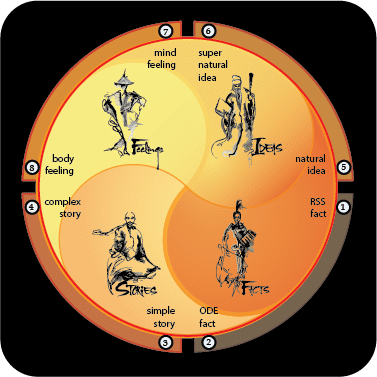Socially, Asperger’s functions like a barrier between me and humanity. Is it also like this for you?
To begin with, I salute the questioner. This question is brilliant in how it goes right to the heart of the matter. In doing so, it captures the innocent wisdom of a young child asking a profound question, something we Aspies aren’t supposed to be able to do. This starkly contrasts with the attitude underlying many of Quora’s Asperger’s questions. Most blindly adhere to the medical view; that we are broken, rather than different.
Ironically, in large part, it is this view (that we are “poor suffering people with no friends and bad eye contact”) which creates the barriers. What human being could constantly push themselves to self examine and still behave normally, let alone know how to connect to others?
As for my personal experience about feeling barriers, my answer is yes and no. During the “yes” years (from age two through most of my forties), I felt so alone and defective that thoughts of suicide were my constant companion. And between age 13 and 19, I did try a number of times.
During this part of my life, including when I realized (in 1991) I had Asperger’s, I felt broken and defective. No surprise, I felt the need to apologize to almost every person I met for who I was and how I might or may have offended them. I also felt the need to protect people from me, by staying away from them. Talk about barriers. As if the hurt people with Asperger’s cause is the only hurt that matters.
This gradually changed as I began to see Asperger’s as what it truly is; a minority personality. And this has led to my feeling deeply connected to humanity, in large part because of how I spend my time. I spend my days teaching myself and other people with minority personalities how to build bridges to the rest of the world while never imitating their normal. We aren’t broken and they aren’t healthy. We are all just human beings. And human beings feel better when they connect.
For instance, a few days ago, I connected with the mother of a 15 year old who has been questioning whether he has Asperger’s. I, of course, began by telling her I could not tell if he did without personally sitting with him. But when I disclosed that I, the therapist she had just called, had Asperger’s, she began to cry. She had been so afraid of the “medical” downsides that it had not occurred to her there might be any upsides. Let alone that her son’s suffering might lead him to have an extraordinary life.
My Asperger’s has led me and many of the people I work with to have extraordinary lives. By this, I mean, we each in our own ways have developed amazing abilities to connect to others. This has led me to love being with people, and I now look forward to being out in the world. This from a man who was once afraid to talk. No coincidence, I now talk for a living and I spend most of each day learning to break down barriers between people. Who would have thought.
